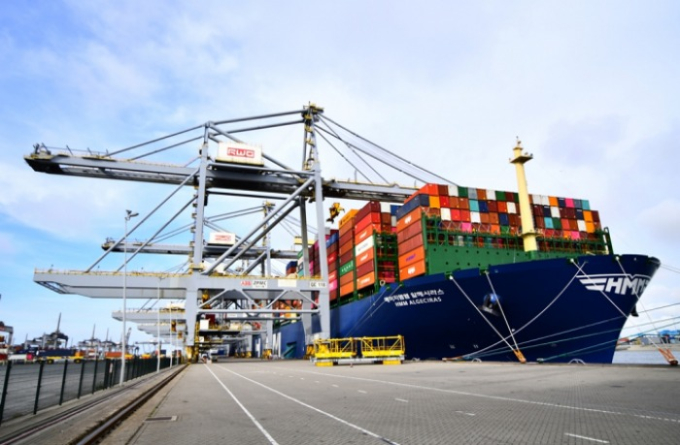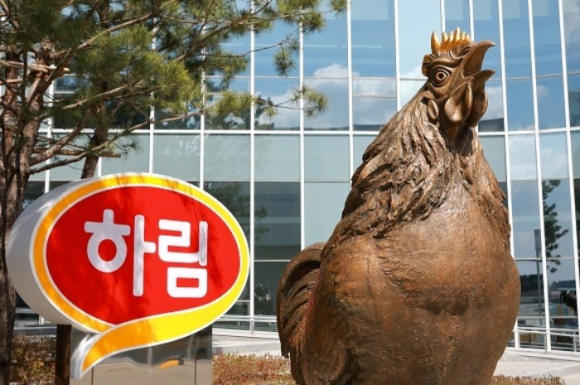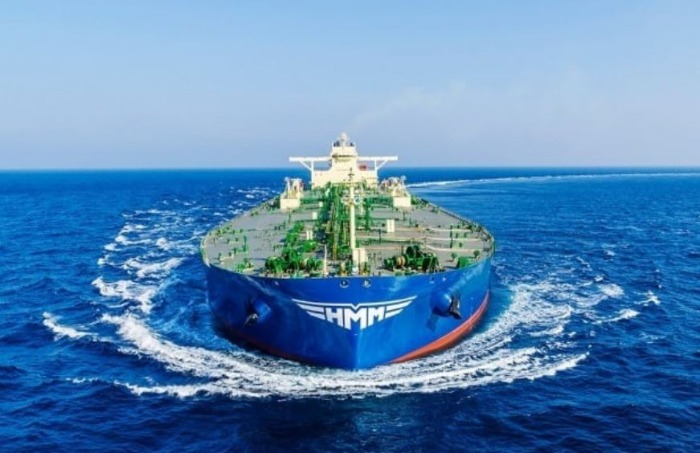Mergers & Acquisitions
Ocean carrier HMM's share price gains put KDB in hot seat
Laws on the valuation standard of nationalized assets must be amended to better reflect corporate value
By Dec 26, 2023 (Gmt+09:00)
3
Min read
Most Read
Alibaba eyes 1st investment in Korean e-commerce platform


Blackstone signs over $1 bn deal with MBK for 1st exit in Korea


OCI to invest up to $1.5 bn in MalaysiaŌĆÖs polysilicon plant


Korea's Lotte Insurance put on market for around $1.5 bn


NPS loses $1.2 bn in local stocks in Q1 on weak battery shares



On Nov. 20, HMM Co., South KoreaŌĆÖs No. 1 ocean carrier, issued new 200 million shares after its two largest shareholders -- Korea Development Bank (KDB) and Korea Ocean Business Corp. -- converted 1 trillion won worth of their perpetual bonds into HMM equities.
The new shares raised the two state-run institutions' stake in HMM from 40.9% to 57.9%, set to be sold to a consortium of Harim and JKL Partners. It also┬Āboosted its market capitalization to 11 trillion won ($8.5 billion) from 8.0 trillion won.
Contrary to the traditional market theory, the bond-to-equity conversion seemed not to deliver a shock to investors. Its share price has remained firm in the month or so since the new share issuance.
The steady share price might have taken the pressure off KDB.
Based on HMMŌĆÖs share performance over the past few months, the state-run lender determined the value of the sea flag carrier, formerly Hyundai Merchant Marine, as stipulated by the law.
According to Article 43 of the Enforcement Decree of the National Property Act, the price of listed securities is set by the weighted average of stock prices over the past 30 days.
Early this month, KDB chose Harim Co., a leading poultry processor, as the preferred buyer of HMM. Harim offered 6.4 trillion won for a 57.9% stake in HMM held by creditors.

Since Harim was named as the final bidder, HMMŌĆÖs share price has spiked to its strongest point in eight months and above both KDBŌĆÖs estimate and HarimŌĆÖs bid price.
Its share price got support after the Houthis, an armed group from a minority sect from Yemen, attacked Red Sea ships. Investors bet HMM would be able to raise its market share amid the conflict on the Red Sea, which could disrupt the global logistics system.
Ironically, HMMŌĆÖs strong stock performance put KDB in the hot seat.┬Ā
HMMŌĆÖs value assessment, based only on its share price, led it to reject a bid from Dongwon Group, one of the two strong candidates, because of its lower bid.
In the absence of a runner-up, KDB might have little room to maneuver in negotiations with Harim, while not raising the price tag.
ŌĆ£A failure for both sides to reach a definitive agreement means a collapse of the deal (to sell HMM). So a huge burden is on the sell side,ŌĆØ said an investment banking official.
Last week, KDB held a kick-off meeting with Harim to discuss the terms of the HMM sale.

The HMMŌĆÖs case might serve as a good example of how the law could hinder government efforts to recover as much taxpayer money as possible from the sale of nationalized assets.
Although not stipulated by the law, state-run institutions are allowed to apply other valuation tools to state assets up for sale in consultation with outside institutions, which conduct due diligence.
However, applying such valuation methods could stir controversy and hold some officials involved in the sale accountable for failing to set a fair value on a state asset.

To allow more flexibility for the sale of nationalized assets, the law needed to be amended on asset valuation standards.
Now that HMMŌĆÖs share price has seen a strong rebound, should KDB cancel the deal with Harim not to sell it below the market price? Or should KDB be reprimanded for proceeding with the HMM sale, not waiting to extract better terms?
(Corrected on Jan. 23: The new shares issued in November raised Korea Development Bank and Korea Ocean Business' stake in HMM from 40.9% to 57.9%, not represent 40.7% of HMM's outstanding shares.)
Write to Jong-Kwan Park at pjk@hankyung.com
┬Ā
Yeonhee Kim edited this article.
More to Read
-
 Mergers & AcquisitionsPoultry processor Harim to buy Korean top sea carrier HMM for $5 bn
Mergers & AcquisitionsPoultry processor Harim to buy Korean top sea carrier HMM for $5 bnDec 18, 2023 (Gmt+09:00)
3 Min read -
 Shipping & ShipbuildingS.KoreaŌĆÖs HMM expands bulk carrier fleet for stable profit
Shipping & ShipbuildingS.KoreaŌĆÖs HMM expands bulk carrier fleet for stable profitNov 02, 2023 (Gmt+09:00)
2 Min read -
 Shipping & ShipbuildingKorea's HMM creditors convert $739 mn bonds into shares
Shipping & ShipbuildingKorea's HMM creditors convert $739 mn bonds into sharesOct 20, 2023 (Gmt+09:00)
2 Min read -
 Mergers & AcquisitionsKorea's Harim to divest of Hanjin KAL shares to fund HMM acquisition
Mergers & AcquisitionsKorea's Harim to divest of Hanjin KAL shares to fund HMM acquisitionOct 17, 2023 (Gmt+09:00)
1 Min read -
 Mergers & AcquisitionsDongwon founder vows to acquire KoreaŌĆÖs top container line HMM
Mergers & AcquisitionsDongwon founder vows to acquire KoreaŌĆÖs top container line HMMSep 19, 2023 (Gmt+09:00)
2 Min read -
 Shipping & ShipbuildingKorea's HMM bidders shortlisted to LX Group, Harim, Dongwon
Shipping & ShipbuildingKorea's HMM bidders shortlisted to LX Group, Harim, DongwonAug 30, 2023 (Gmt+09:00)
2 Min read
Comment 0
LOG IN


